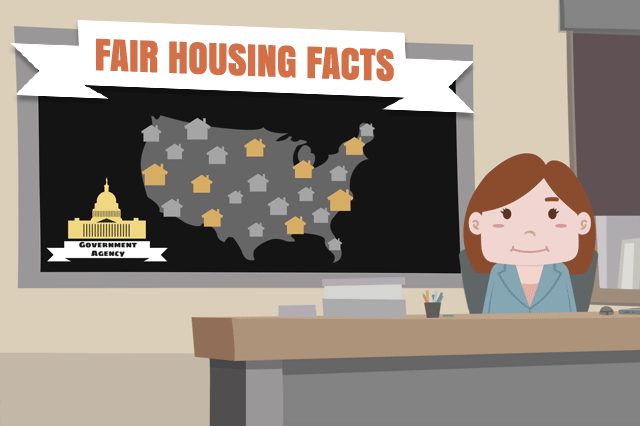The FHA Commitment to Fair Housing
February 11, 2025
This insurance reduces the risk associated with lending to borrowers who may otherwise be considered higher risk, encouraging lenders to offer more favorable terms, such as lower down payments and more flexible credit requirements.
A key element of the FHA program is its commitment to fair housing, deeply rooted in the Fair Housing Act.
The act, passed into law in 1968, prohibits housing discrimination based on race, color, religion, national origin, sex, familial status, and disability.
As a government agency, the FHA must uphold and enforce the Fair Housing Act in all its programs and operations.
The FHA's role in promoting fair housing is more than helping consumers avoid discriminatory practices. The FHA's mission includes removing barriers to housing opportunity and creating inclusive communities.
This involves educating lenders, real estate professionals, and consumers about their rights and responsibilities under the Fair Housing Act. The FHA also provides resources and support to individuals who believe they have experienced housing discrimination.
The Fair Housing Act and its Impact on FHA Lending
The Fair Housing Act is the cornerstone of fair housing law in the United States. It prohibits discrimination in selling, renting, or financing housing based on protected characteristics. The FHA plays a vital role in enforcing the Fair Housing Act and ensuring everyone has equal housing opportunities.
The following are the protected characteristics under the Fair Housing Act:
- Race: This includes discrimination based on ancestry or ethnic characteristics associated with a particular race.
- Color: This refers to discrimination based on a person's skin color.
- Religion: This protects individuals from discrimination based on their religious beliefs or practices.
- National Origin: This prohibits discrimination based on a person's birthplace, ancestry, or cultural background.
- Sex: This includes discrimination based on gender, sexual orientation, and gender identity.
- Familial Status: This protects families with children under 18 from discrimination. It also includes pregnant women and individuals seeking custody of a child.
- Disability: This prohibits discrimination against individuals with physical or mental disabilities and requires housing providers to make reasonable accommodations for them.
Lenders cannot refuse to make a loan, offer different loan terms, or deny housing opportunities based on a borrower's race, color, religion, national origin, sex, familial status, or disability. KNOW YOUR RIGHTS.

FHA Loan Articles
January 15, 2025Buying a condo with an FHA loan is an option some don’t consider initially, but it’s worth adding to your list of potential property types. FHA loans for condo units traditionally require condo projects to be on or added to the FHA-approved list. Still, changes in policy over the years allow borrowers to apply for FHA loans on condo units in projects not on the list on a case-by-case basis.
December 30, 2024When applying for an FHA loan, lenders will consider more than just your credit scores and history. They also look at other factors affecting your risk profile and the interest rate they offer you.
One factor is occupancy type. For FHA loans, this is straightforward because these loans require owner occupancy. Investment properties aren't eligible. While conventional loans may have different rates for primary residences, second homes, and investment properties, this isn't a concern with FHA loans.
December 18, 2024Did holiday spending get the better of you? Are you looking for ways to recover your spending plan as you search for a new home?
The holidays are a whirlwind of festivities, family gatherings, and gift-giving. But amidst the cheer, it's easy to lose track of spending. If you're aiming to buy a home in the near future, those extra expenses can have a bigger impact than you might realize, especially if you're considering an FHA loan.
December 17, 2024The Federal Housing Administration provides mortgage insurance on loans made by FHA-approved lenders, making homeownership more attainable for those who might not qualify for conventional loans.
While financial factors like credit score and debt-to-income ratio are key to loan approval, other non-financial aspects can also cause a denial.
December 11, 2024FHA loans, insured by the Federal Housing Administration, are a popular choice for many homebuyers, especially those who need a lower downpayment or more forgiving credit qualifying requirements. FHA loans are primarily intended for primary residences—homes that borrowers will occupy as their main dwelling.







